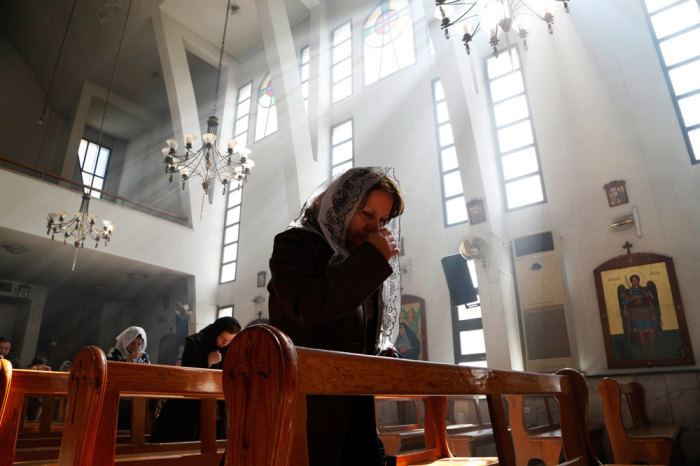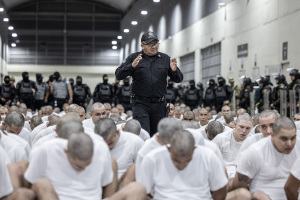Syria: Over 220,000 Killed in 5 Years of Civil War; Human Rights Agency Says Atrocities Are 'Stain on International Community'

As the ongoing civil war in Syria has entered it's fifth year, with over 220,000 people dead, humanitarian agencies like Oxfam International have said that the collective failure of world leaders to bring the devastation to an end is a "stain on the conscience of the international community."
"This spiralling catastrophe is a stain on the conscience of the international community," Oxfam wrote in a report, assessing the civil war.
It added that despite several U.N. Security Council resolutions to protect civilians, the violence in the country has continued to intensify, while the humanitarian response has been underfunded.
"While the UNSC has the legal authority to demand these changes, its members and their allies have the political, diplomatic and financial influence, and the ability, to ensure these changes actually happen. Without action by individual governments, the demands within these resolutions remain little more than words on a page. They can no longer be ignored," Oxfam noted.
The Syrian civil war, which began in 2011, has revolved around several different Islamic rebel groups attempting to take down the government of President Bashar al-Assad. The Syrian leader has been accused by the U.S. government of grave human rights violations, such as using chemical weapons on his own people, though Assad has denied the charges.
The U.K.-based Syrian Observatory for Human Rights has said that at least 100,000 of the victims are civilians, among them close to 10,000 children.
U.S. Secretary of State John Kerry has said that efforts for peace are ongoing, and recently revealed that he's willing to hold talks with Assad again in order to broker an agreement.
"We have to negotiate in the end," Kerry said. "What we're pushing for is to get him to come and do that, and it may require that there be increased pressure on him of various kinds."
The Syrian crisis has also been complicated by the rise of terror group ISIS, which is waging war both on Assad and the other Islamic groups who stand in its way. ISIS has captured a number of cities across Iraq and Syria in a mission to establish an Islamic caliphate in the region.
The civil war has also given rise to the persecution of Christians, International Christian Concern noted.
While Christians have often been caught in the crossfire between government forces and rebel groups, with the rise of ISIS they've also increasingly been specifically targeted, most recently with the abduction of close to 250 Assyrian Christians at the hands of the terror group.
"It is heart-breaking to witness the continuing devastation as a result of the war in Syria. Entire religious communities are being wiped out. In single attacks, Christian villages and centuries of their history has been destroyed," said Todd Daniels, ICC regional manager for the Middle East.
"It is not just the past that is being lost, but the future as well as an entire generation is growing up displaced by this conflict. We strongly support the call for an end to the hostilities in such a way that creates a Syria where all of its citizens — including Christians — are able to freely live and carry out their faith. We urge world leaders to act quickly, and decisively to make this a reality."
Beside the human death toll, the civil war has destroyed almost the entire infrastructure of the country, with 83 percent of the lights going out across the country since 2011, as satellite images have shown. Close to 4 million Syrians have fled the border as refugees, while another 7.6 million are internally displaced and facing harsh living conditions.
In its report, Oxfam highlights several key steps it says must be taken urgently.
"Deliberate obstruction of aid must halt immediately, as must the use of indiscriminate weapons in built-up areas, the targeting of civilians, and their arbitrary detention, kidnapping and torture," the report states.
"The impunity which characterizes the conflict must be brought to an end," it continues.
"Real backing for the U.N. peace envoy's plans must be matched by a push to reconvene talks in line with the 2012 Geneva Communiqué, and redoubled efforts to end the violence engulfing the country and region."





























